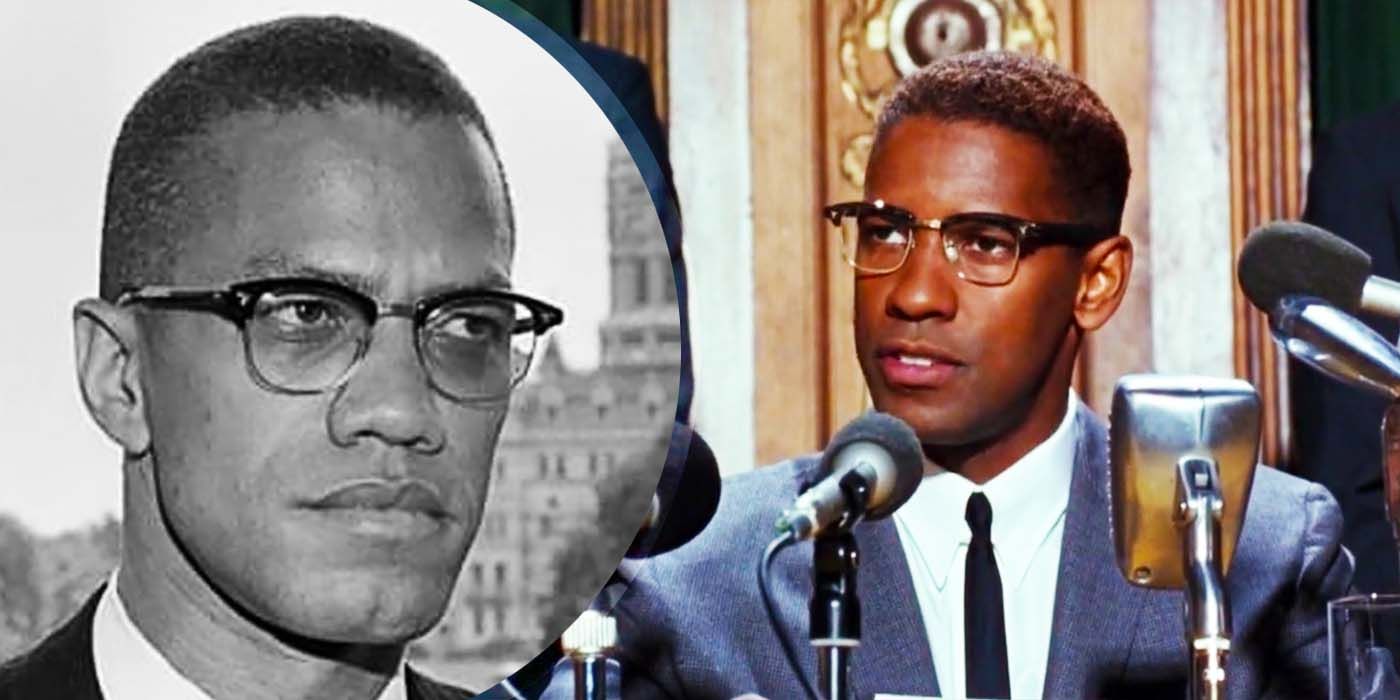
Malcolm X is undoubtedly one of Spike Lee's most famous and most accoladed works - but how much does Spike Lee get right about the true story? The film was in development for over 20 years, with 20th Century Fox announcing it just a few years after the real Malcolm X's assassination in the 1960s. The film does a lot to keep true to its subject's views on race relations. However, Spike Lee's Malcolm X does leave out some key information.
The real Malcolm X was born Malcolm Little in 1925. He famously changed his surname to an X in his adulthood, as a symbol for the ancestral surname that his family lost when they became slaves. Throughout his life, Malcolm X was a fighter for African-American rights, and he wasn't afraid of resorting to violence, if necessary. He was a prominent member of the Nation of Islam until the early 1960s when he converted to Sunni Islam. This caused a rift between him and other prominent activists that led to death threats and Malcolm X being killed in 1965.
Malcolm X has often been accused of being racist against white people, and the film does not shy away from his controversial messaging on race relations in America. In fact, Malcolm X embraces his views that black people needed to seize power and take arms if necessary. However, while the film does its best to retain his message of black liberation, it does take liberties with the facts of his life.
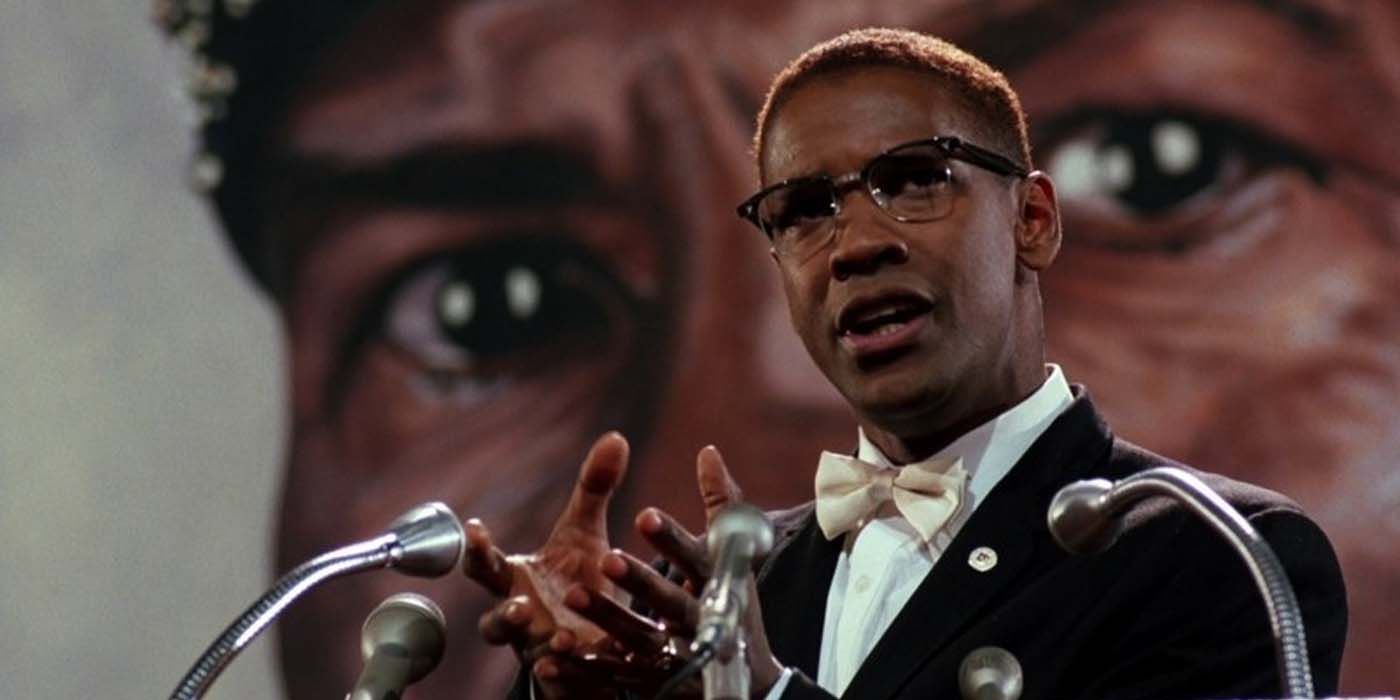
While not technically inaccurate, the opening scene of the film does not relate directly to Malcolm X. The film opens with Denzel Washington reading one of Malcolm X's speeches, while scenes of police brutality against Rodney King are shown. After being arrested for driving under the influence, King was horribly beaten by members of the LAPD. A bystander filmed the incident, which involved King being beaten even while laying on the ground and sent it to news outlets. The cult horror series Tales from the Hood is one of many pop culture series that reference the incident.
This incident took place almost 30 years after Malcolm X died - so why was it included? This violence was exactly the kind of issue Malcolm X spoke out against in his life. Malcolm X depicts how his family home was burned down by Klansmen and his father murdered by unknown attackers. By including the Rodney King incident, Spike Lee attempts to draw connections between the past and his contemporary present, essentially demonstrating that the issues Malcolm X was trying to bring to light still existed at the time of Malcolm X's release.
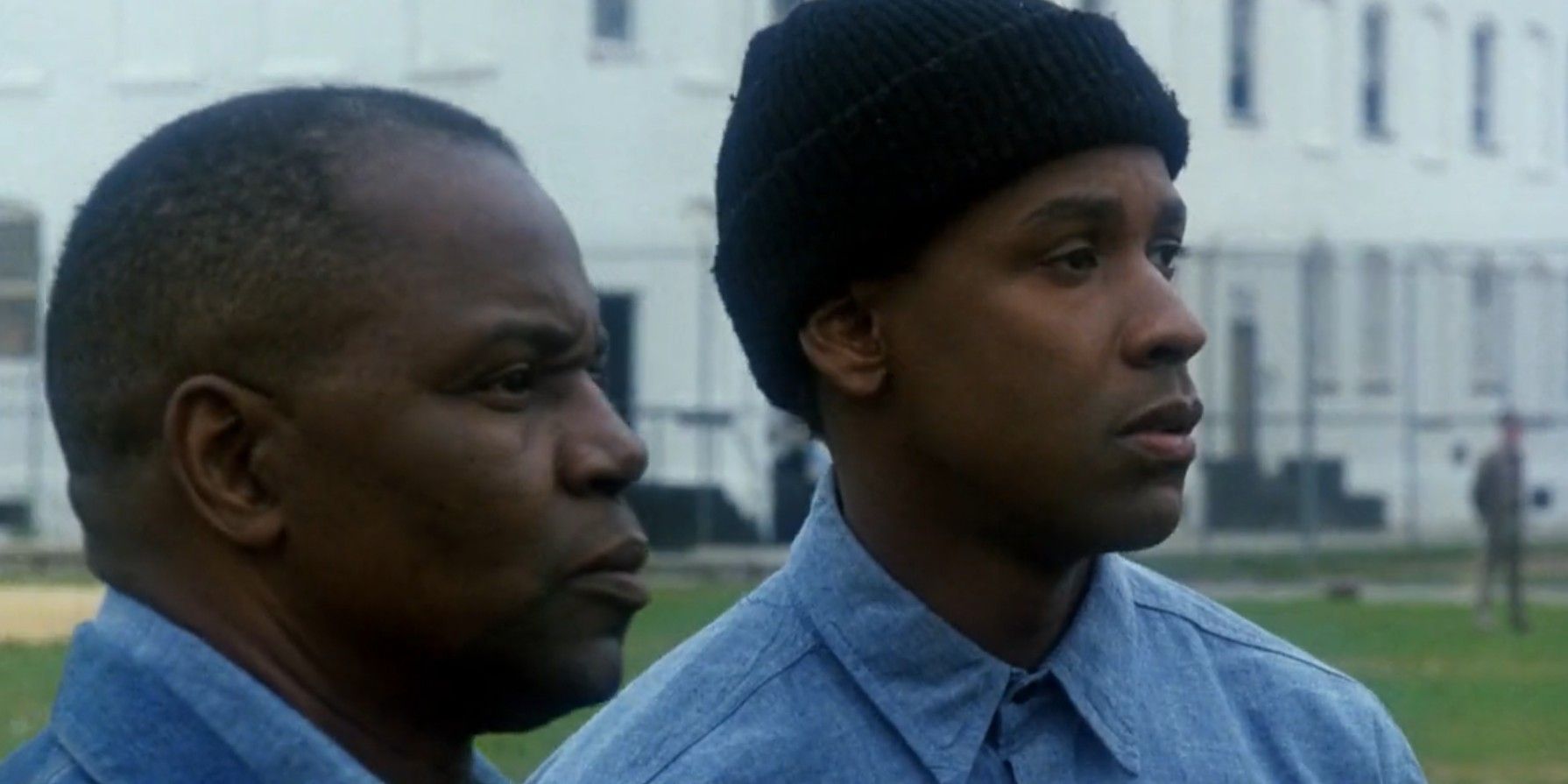
In the film, Malcolm meets Brother Baines while in prison. Baines teaches him about Elijah Muhammad and the Nation of Islam, creating a turning point in Malcolm's life. However, in reality, Brother Baines never existed. In fact, Malcolm X joined the Nation of Islam (whose members included Muhammad Ali) because of his family. While in prison, Malcolm X received letters from his brother and sister, who told him of Elijah Muhammad and the Nation of Islam. His conversion was slower and from multiple sources. For the sake of being concise, the film decided to create Brother Barnes.
Likewise, the film later shows him arguing with Barnes when he leaves the Nation. Malcolm X came to feel that the Nation of Islam had done all it could and needed to switch directions, causing a feud between him and its prominent members. While Barnes did not exist, Malcolm's brother certainly did - and he felt deep betrayal over Malcolm leaving. This feud plays out with Baines in the film.
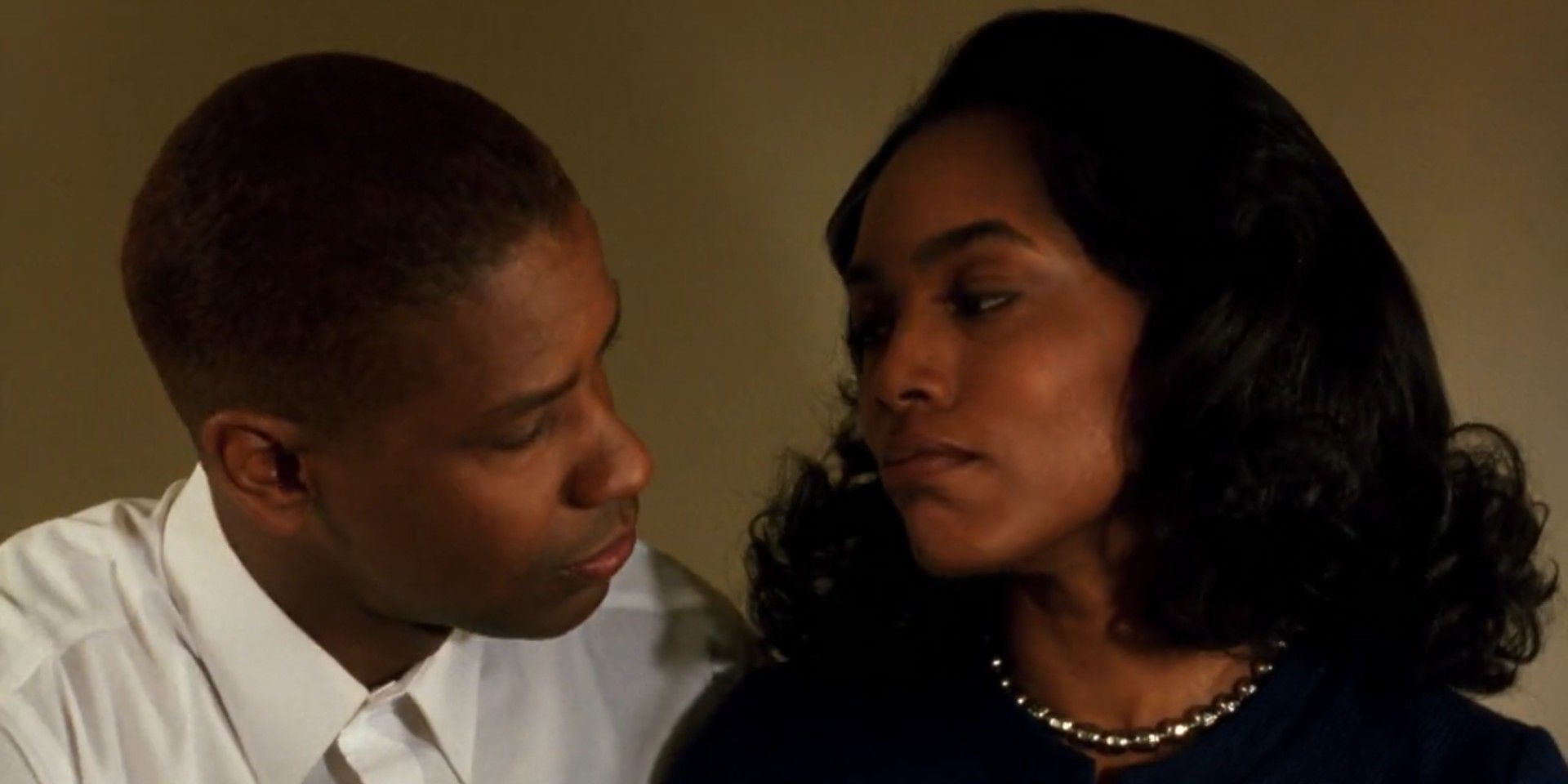
The film shows a scene in which Malcolm argues with his wife, Betty Shabazz (also known as Betty X). Betty feels that his loyalties to Elijah Muhammad and the Nation of Islam are misplaced. The two shout at each other, with the argument getting quite heated. The real person behind the character Betty claims this is entirely fictional. Betty said that she and her husband never shouted at each other, and she was always supportive. After his death, Betty raised their six children on her own, never remarrying, and went on to become a college professor.
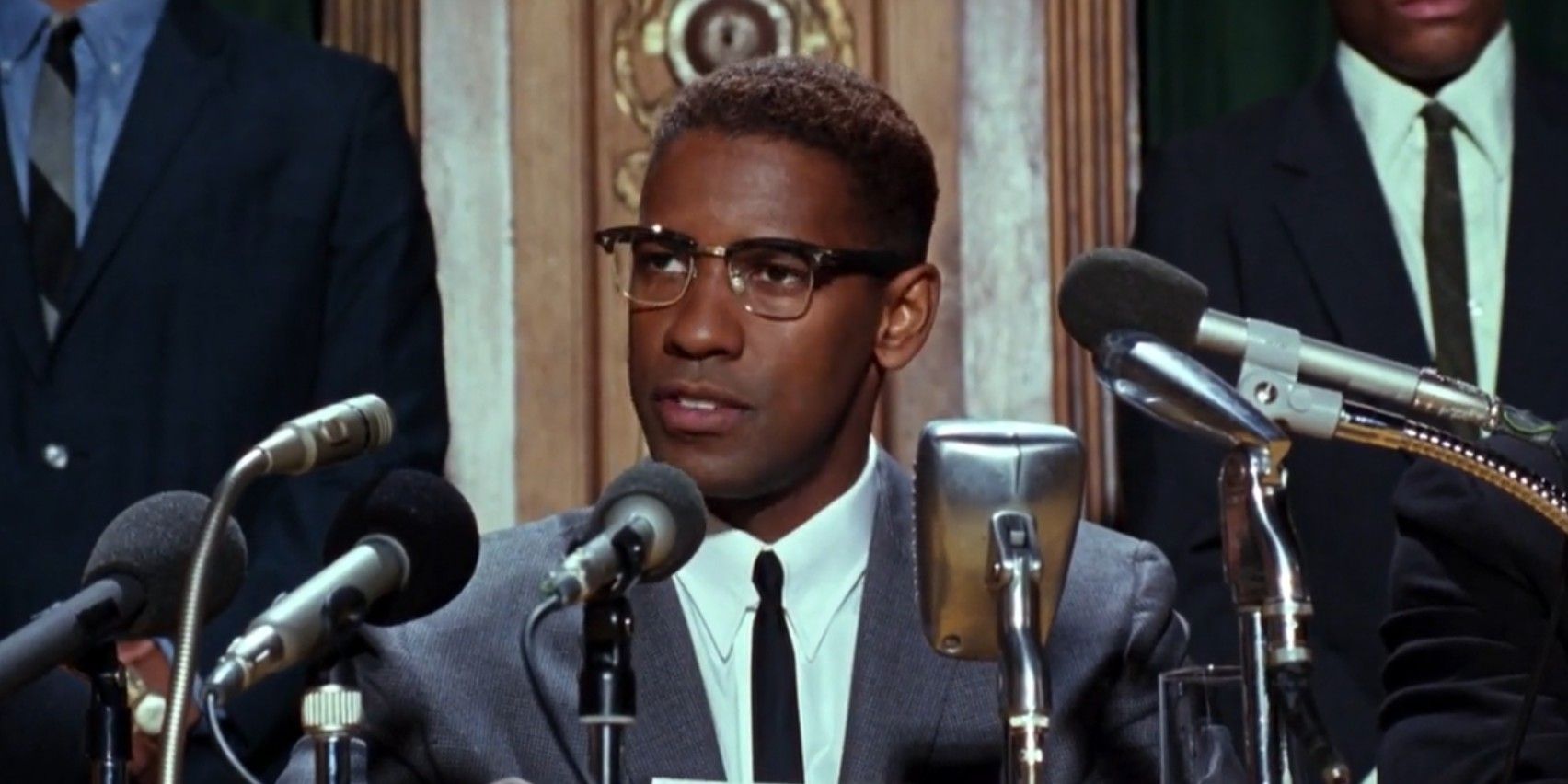
When it comes to his death, Malcolm X adheres quite closely to FBI records. It identifies the killers are Talmadge X Hayer, Norman Butler, and Thomas Johnson. It keeps to the reports of how, where, and when he was killed in accordance with court records. The problem is that while these three were convicted, who was actually involved remains controversial. Despite this being considered one of the Spike Lee's best movies because of its honest look at Malcolm X, it does not address these rumors.
Butler and Johnson both maintained that they were innocent, and Hayer backs this up - though he claims four others were involved, none of whom were charged. Of course, because Malcolm X was so controversial, many believe that he may have been assassinated by the FBI or another government agency. However, many suspect another man who was noticeably absent from the film: Louis Farrakhan.

Louis Farrakhan is the current leader of the Nation of Islam, appointed by Elijah Muhammad. He has made no mystery of his feelings about Malcolm X, believing him to have betrayed the Nation not only by leaving but by the comments he made after his exit. Two months before his death, Farrakhan wrote that "such a man is worthy of death," in reference to Malcolm X. Despite being such an important figure, he doesn't appear in this film or the cast of characters for One Night in Miami, a new piece involving Malcolm X.
This is no coincidence. Spike Lee allegedly received death threats from Farrakhan, prompting him to scrub all mentions of the religious leader from his film. In his place, once again, the fictional Brother Baines takes over. It stands to reason that Farrakhan has made it clear that he wants no connection between himself and Malcolm X, which is why he is so rarely discussed in these biopics.
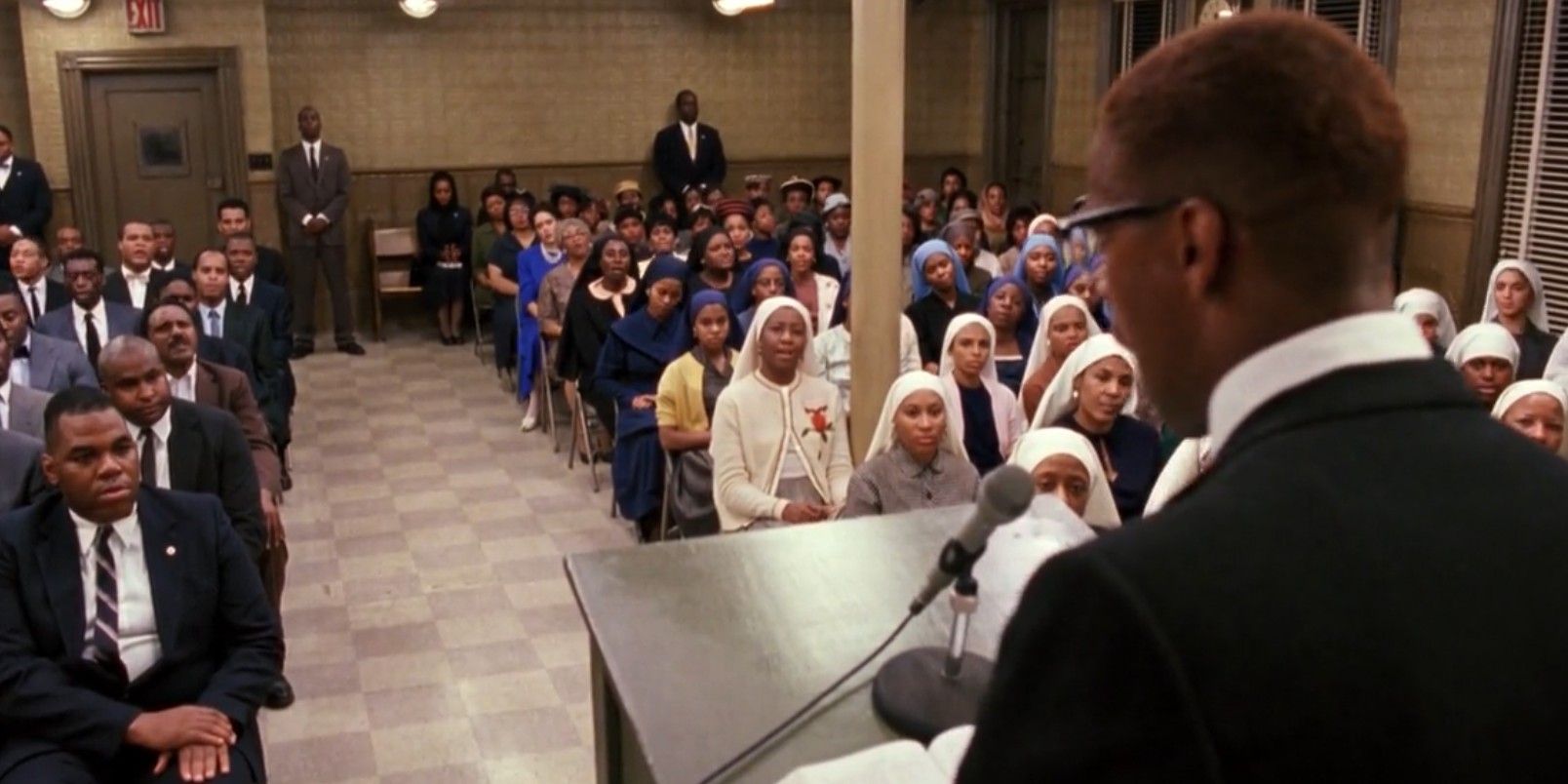
Malcolm X often spoke on two things: racism and Islam. In fact, he stated: "America needs to understand Islam, because it is the one religion that erases from its society the race problem." He wholeheartedly believed that Islam would lead to racial peace. The film is less interested in his religious beliefs, however. It certainly doesn't shy away from his faith in Allah or involvement in Islam, but it spotlights race relations as his sole focus. The real, true story of Malcolm X is one that understands he did not see race and religion as mutually exclusive topics. His faith was a big part of his identity and greatly influenced his ideas on race.
Malcolm X is a cinematic achievement that, for the most part, gets history right. The film stays true to the essence of Malcolm X's story and messages. Spike Lee's Malcolm X does not shy away from the horrific racially charged crimes he witnessed or his controversial messages, which is perhaps more important than nailing all the finer details.
from ScreenRant - Feed https://ift.tt/3wOPwbY


0 Comments